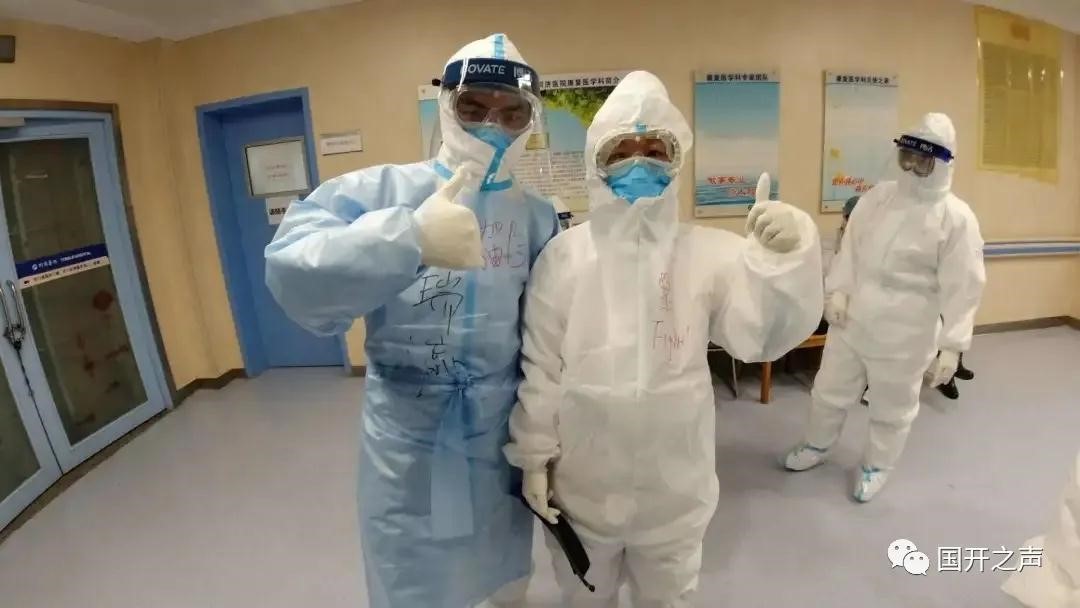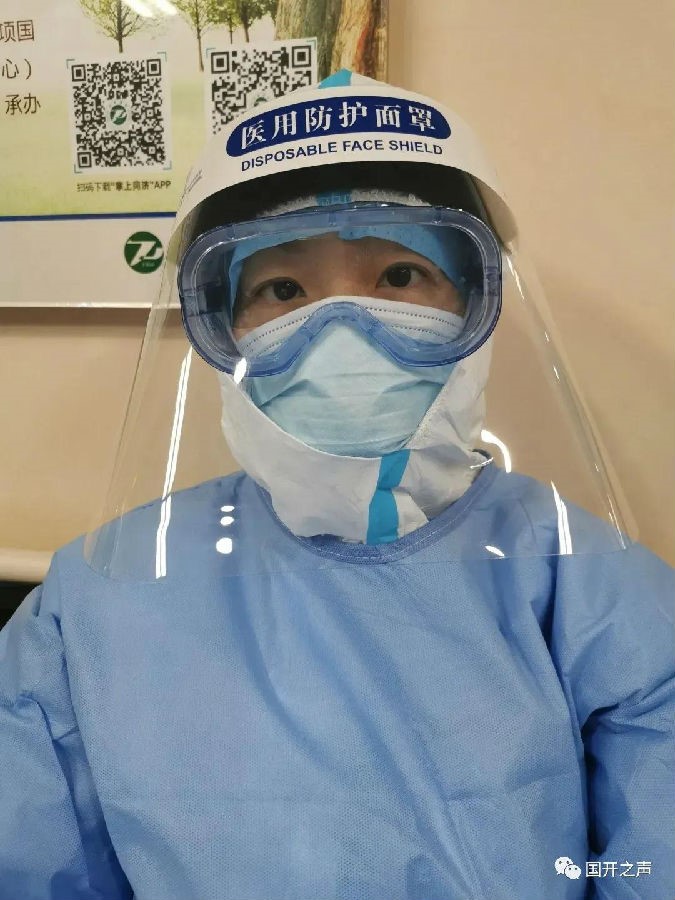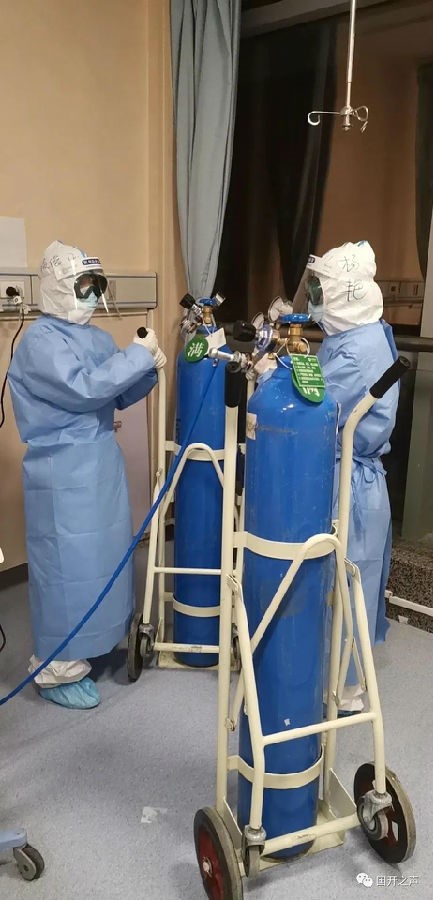 Editor's note: In the battle with the COVID-19 epidemic, more and more fighters are coming to its front lines, including students and former students of the Open University of China (OUC). Like other fighters, no matter how ordinary, they are contributing what they can. Let's take a close look at some of their stories.
Editor's note: In the battle with the COVID-19 epidemic, more and more fighters are coming to its front lines, including students and former students of the Open University of China (OUC). Like other fighters, no matter how ordinary, they are contributing what they can. Let's take a close look at some of their stories.
On 11 March 2020, Shanghai released a list of medical staff working in Hubei; Zhai Yejun's name was among them.
She is an undergraduate Nursing student (autumn 2018 class) at the Xinzhi teaching centre, Shanghai Branch, of the Open University of China (OUC), and a nurse at Huashan Hospital. On 9 February, together with her colleagues, she was rushed to the front lines in Wuhan, and went to work in the intensive-care unit (ICU) of the Optics Valley, Wuhan Tongji Hospital, which was completely taken over by her team. The following is a transcript of a recent interview with her.
What was the situation in Wuhan when you arrived, and what were your thoughts?
Our hospital is part of the Red Cross. As soon as I heard about the outbreak, I was prepared to go to Wuhan, and signed up early. My duty is to be on the front lines.
I remember that it was 3 am or later when I got the call to prepare to go to Wuhan immediately. In 90 minutes, the hospital brought together 214 medical staff. I felt ready, however, since I'd been preparing for this for a long time. I began packing, and made arrangements with my family. We took a night plane, and in Wuhan were taken to a hotel. The next day, I was trained to put on and take off the protective clothing, and began to plan for work. I worked almost around the clock for two days.
How did you feel when you first arrived in Wuhan?
When I first arrived in Wuhan, I saw the words "Stay Strong, Wuhan" and "Stay Strong, China" projected on buildings visible from the shuttle bus. My spirits were lifted, but I felt nervous too, since the patients in the ICU were very ill, and I was not very familiar with treating infectious diseases. I was learning and working at the same time. After 20 days, however, I felt confident dealing with most situations.

What is the normal state of an ICU?
We are basically confined to two points, the hospital and the hotel, connected by a shuttle bus. Although we are given time to rest, I've had almost no breaks. I work almost every day. If I have time, I jog around the hotel, trying to stay in a good frame of mind.
Wearing the protective clothing really wears me out. I'm not that strong, but had never felt faint before. In Wuhan, I almost fainted in the ward once, I think because of the tight protective clothing, and lack of oxygen due to the mask. I was sweating a lot, and felt sick. Some nurses have in fact fainted, which is very dangerous. Now I'm getting used to it, and feel a lot better.
What has the ICU been like recently?
A hospital's ICU is the place where it treats the most critically ill patients. The work is relatively more intense there than in other departments, and all kinds of problems are constantly arising. However, I think the situation has improved recently, since we have become familiar with the work there, and are able to cooperate more freely and smoothly.

What has impressed you most about working in Wuhan?
There was one patient who was in very bad shape when he came in. He had to be intubated with an invasive ventilator. Yet after a few days he began to recover, and to be able to communicate. His oxygen saturation was basically fine. It makes me very happy to see a patient move out of intensive care.
Your teachers and classmates are very concerned about you. Do you have anything to say to them?

I want to thank them for their concern, and assure them that I'm fine here. What I want to share with them is that when I first chose to study Nursing, I was still confused about my future. However, working here has taught me where the responsibility of a medical worker lies, and I have found that I feel a deep concern about the fates of my patients.
How long will you stay in Wuhan? What do you want to do most after the pandemic has passed?
It's not up to me how long I stay here, but I think we should continue to help the people of Wuhan for as long as they need us.
After the pandemic has passed, I'd like to just hang out and have some fun. I used to hate crowds, but I miss them now. The sight of Wuhan so empty has made me very sad. I hope its noise and vitality will soon resume.
By OUC News Network